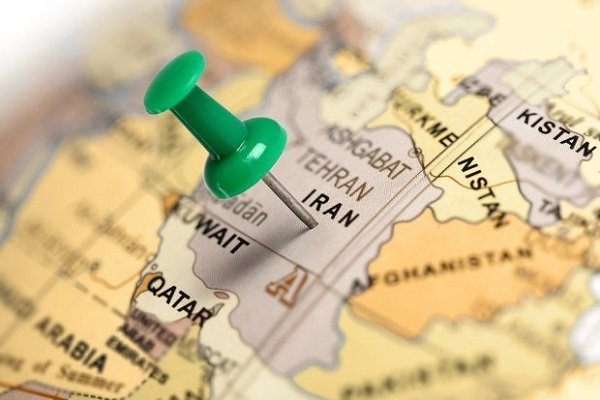Since new round of US sanctions on Iran is not as effective as the previous batch of sanctions, a perfect opportunity has arose for the Islamic Republic of Iran in order to neutralize these sanctions using its maximum capability and potential.
In Oct. 2017, US President Donald Trump asserted that he will not confirm and approve Joint Comprehensive Plan of Action (JCPOA), Iran’s official nuclear title. In May 2018, Trump announced that he will pull US out of JCPOA and now, about four months have passed since the US withdrawal.
During this period, experts and specialists in former- and current US administration have said that new US sanctions on Iran would not be as effective as the previous sanctions. In some cases, they have warned that the Trump's era could be the last time that US sanctions have taken effect due to Trump's inexpert and inappropriate use of the sanctions regime. Some other experts believe that US re-imposition of sanctions on Iran can cost dearly for the US economy.
Accordingly, by reviewing specialized and expert-level statements of US officials working in the field of sanctions, three reasons can be cited for the ineffectiveness of sanctions as mentioned in this report.
Lack of support from US allies and partners for Iran sanctions
The first reason for ineffectiveness of sanctions, that has been stressed by American experts, is the lack of support of US allies and its partners on Iran sanctions, because, the United States has no direct trade and business relationship with the Islamic Republic of Iran. To exert maximum pressure on Iran, it is essential that countries that have extensivetrade and business relations with Iran should support and follow US in this regard.
In this line, Daniel Glaser former US Undersecretary of Treasury for Countering Financing Terrorism (CFT) believes that sanctions are merely an instrument. On the contrary, despite US serious remarks, American goals and objectives are unclear in this regard. Even the strategy that the United States is set to achieve through these goals is uncertain. Punitive economic pressure against the Islamic Republic of Iran will have a serious and destructive effect. But sanctions will always be more effective when implemented by many countries. As a result, it can be said that America’s growing isolation from its old allies could be more detrimental.
Richard Nephew also said about the impact of US oil sanctions on Iran that a more difficult challenge would be when Iran’s export of oil is sanctioned in November. At that time, large energy companies that leave Iran would be replaced by smaller ones that could potentially receive waiver from US sanctions in order to remain active in the Islamic Republic. Therefore, replacing large European firms with smaller ones can mitigate the impact of sanctions in the long run.
On the other hand, Elizabeth Rosenberg, former senior US Adviser on sanction-related issues at the US Treasury Department and Peter E. Harrel, former deputy assistant secretary for counter threat finance and sanctions in the US State Department’s Bureau of Economic and Business Affairs, are of the view that Trump’s use of sanctions may be unsustainable as the US President risks undermining and weakening his most powerful policy.
They pointed to the worrying cases that may hamper the effectiveness of US sanctions on Iran.
The two pointed to the first troubling sign, which is the lack of support from US allies and partners for the imposition of sanctions on Iran. They said that the first worrying sign is that "Trump’s aggressive use of sanctions is straining cooperation with allies. While the United States has more sanctions leverage than any other country, the reality is that U.S. sanctions have powerful bite when allies apply coordinated, parallel measures. This is particularly true of sanctions targets such as Iran and Russia that have deeper economic ties with other countries than they do with the United States. European and Asian cooperation was essential to success of the oil sanctions on Iran between 2012 and 2015, since the United States did not purchase Iranian oil."
So, the unilateral move and lack of cooperation from US allies is one of the factors that will slow down the effectiveness of sanctions, because, their support is needed for the effectiveness of sanctions on the energy sector as US partners and allies are major buyers of Iranian oil.
In this regard, according to a report released in the first four months of the current year (started March 21, 2018), Trade Promotion Organization of Iran (TPOI) and the Ministry of Industry, Mine and Trade named China, Iraq, India, Turkey, Pakistan, Oman and Russia as Iran’s top 10 export and import target markets respectively which will not agree with the US sanctions.
Modern Financial Technologies
The most challenging part of US sanctions for Iran is the US financial system, so that US can hinder transfer of Iranian oil revenues using dollar and Society for Worldwide Interbank Financial Telecommunication (SWIFT). On the other hand, US dollar and SWIFT can identify banks, financial institutions and the companies that work and cooperate with the Islamic Republic of Iran.
In this relation, many countries have been using independent financial messaging systems for years and the use of modern financial technologies such as ‘Block chain’ has boomed in recent years.
Accordingly, many domestic experts also acknowledge that use of modern financial technologies such as ‘Block Chain’ and independent financial messaging system as well as bilateral and multilateral monetary pacts are considered as the most effective ways to circumvent US financial sanctions and these cases are of the biggest challenges for the effectiveness of US sanctions on Iran.
With due observance to the said issue, moving out of US financial system and lack of using foreign exchange as well as independent financial messaging systems have been cited as the prerequisite of frustrating US in re-imposition of financial sanctions against Iran.
The internal structure of US government
Inefficient and disrupted structure of US internal system is one of the other issues that has been mentioned in statements of US experts as a potential reason for the inefficiency of US sanctions on Iran.
Rosenberg and Harrel refer to US internal structures as the third troubling sign of sanctions unsustainability, maintaining that "sanctions depend on human capital — the talented women and men across the US government who analyze targets, develop regulations, and work with allies to craft broad-based financial pressure campaigns. There has always been high turnover among sanctions staff, given the demanding workload and pull of lucrative private sector job offers. But the frenzied pace, with no additional resources, and hasty reversal of sanctions implementation conducted over the last several years on Iran, Cuba, and Russia, pushes more bureaucrats toward the door."
US sanctions can be made ‘ineffective’
Given the statements of members of former and current government of US sanctions team and also monitoring the trend of developments since US pullout from JCPOA up to the present time, it can be concluded that there are triple challenges in exertion of US sanctions. On the other hand, the US government has faced these challenges and it is possible to assess the formation of a special Action Group under Brian Hook.
In his introduction ceremony, Brian Hook pointed to the two main missions of Iran Action Group as follows: organizing and coordinating organizations inside the US government, launching diplomatic consultations as well as coordinating with the foreign partners for Iran’s sanctions.
Therefore, US government is seeking to pursue its strategic game before the resumption of oil sanctions in Nov. 2018.
For this reason, it is necessary that the Iranian government try to use its high diplomacy potentials to neutralize the impact of sanctions.
MA/4393829


























Your Comment